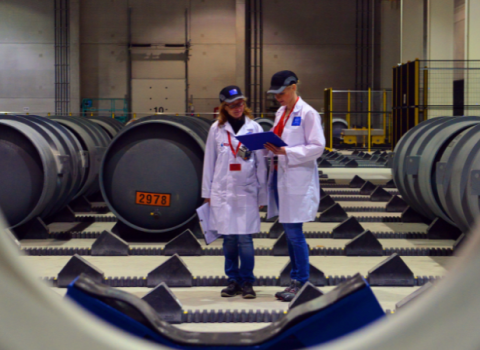
The ITER fusion reactor.
The signing took place at a ceremony at the Elysée Palace in Paris earlier this week, hosted by French President Jacques Chirac and European Commission President José Manuel Barroso. The documents were endorsed by China, the EU, India, Japan, South Korea, Russia and the US, a consortium that represents over half the world’s population.
The agreement is to come into effect during 2007.
ITER Director General to be, Kaname Ikeda said the organisation is now able is able to embark on its mission, “To help create a new source of energy for humankind”.
With the formal agreement in place ITER can now begin spending the estimated €5 billion it will take to build a pilot plant at Cadarache, in the south of France, to put the physics and technology together and demonstrate the feasibility of fusion power.
Europe will contribute roughly half of the construction costs, with the other six partners will contribute equally to the rest.
The ITER Agreement will be in force initially for 5 years, with the possibility of extension for up to 10 years. The overall aim is to build a prototype fusion power plant that is safe, reliable, environmentally friendly and economically viable.
The JET fusion plant in the UK has produced 16 MW of fusion power, but to achieve that 25MW had to be input to heat the plasma and prime the reaction.





 A unique international forum for public research organisations and companies to connect their external engagement with strategic interests around their R&D system.
A unique international forum for public research organisations and companies to connect their external engagement with strategic interests around their R&D system.